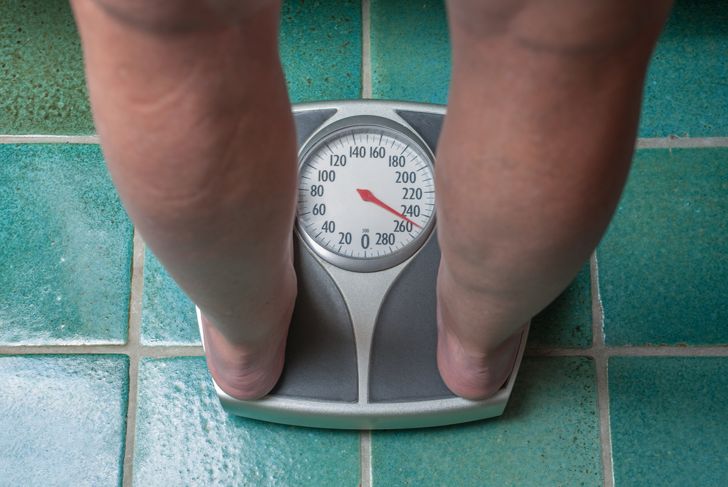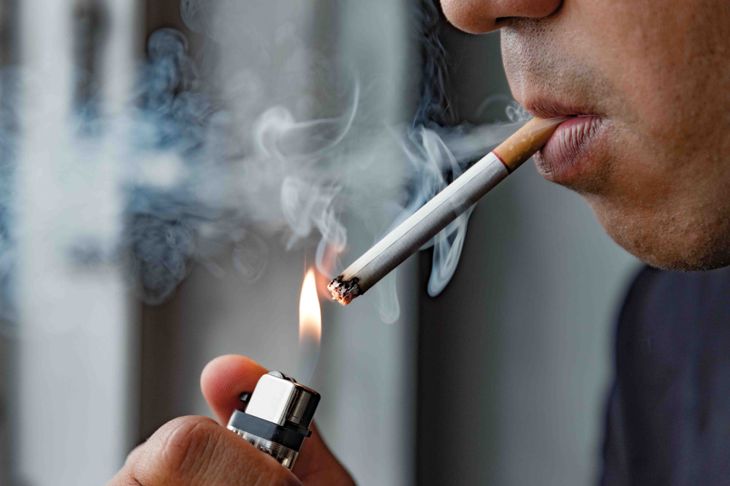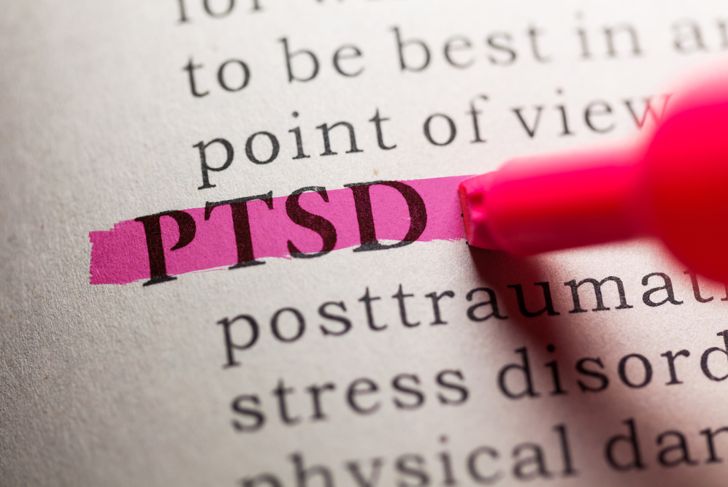Sleep apnea is a common condition that affects the sleep of millions of people. Several types exist, each with unique triggers and causes. Obstructive sleep apnea occurs when the upper airway has a blockage that prevents proper breathing. Central sleep apnea involves the brain being unable to send the signals necessary to breathe. These subtypes can also develop simultaneously as part of complex sleep apnea syndrome.
Excess Weight
Obstructive sleep apnea is most common in people who qualify as overweight or obese. Fat deposits, known as pharyngeal fat, form within the neck. Pharyngeal fat then blocks the upper airway during sleep. This is also why snoring is a typical symptom of sleep apnea. Additionally, excess fat may compress the chest wall, decreasing lung volume.
Smoking
Smokers are three times as likely to have obstructive sleep apnea in comparison to people with no history of smoking. While part of this is due to an increased risk of various respiratory conditions, the act of smoking itself may cause sleep apnea. Experts believe this is due to upper airway inflammation and fluid build-up or edema.
Use of Opioids
Studies show that around a quarter of people who take opioids experience central sleep apnea. People with BMIs that qualify as underweight or a healthy weight were more likely to have severe sleep apnea while taking opioids. One study found that using opioids alongside hypnotics or certain psychoactive drugs could also affect the severity of sleep apnea.
Post-Traumatic Stress Disorder (PTSD)
Sleep apnea and PTSD have a unique and complex relationship. The two conditions appear to affect each other, but it is unclear if one triggers the other. People who have severe PTSD are more likely to have severe obstructive sleep apnea. Additionally, a lack of sleep or lower sleep quality can contribute to worse PTSD symptoms.
Heart or Kidney Failure
Doctors often diagnose sleep apnea in people with advanced kidney or heart failure. These conditions cause edema, especially in the feet, ankles, legs, and abdomen. If the fluid accumulates in the chest, it can affect breathing and lead to conditions like sleep apnea. In heart failure, poor circulation in the pulmonary veins may cause fluid to leak into the lungs, further affecting breathing.
Diabetes
Research indicates that over half of the people with type 2 diabetes experience obstructive sleep apnea. Conversely, people who have obstructive sleep apnea are more likely to develop type 2 diabetes. This relationship has been the subject of many studies, but experts are still unaware of the mechanisms behind it. They advise people with one of the conditions to be vigilant for signs of the other.
Endocrine Disorders
The endocrine system creates and releases hormones that control nearly all of the body’s functions, including metabolism, emotions, mood, and sleep. Some endocrine disorders may cause sleep apnea. Polycystic ovary syndrome (PCOS) prevents proper ovulation and has links to obesity, which can lead to sleep apnea. Hypothyroidism resulting from a low level of thyroid hormones can interfere with breathing. Acromegaly stems from high levels of growth hormone and can trigger swelling in the upper airway.
Neuromuscular Conditions
Various neuromuscular conditions can directly cause or contribute to sleep apnea. These conditions interfere with the signals the brain sends to the airway and chest muscles. A stroke is the most common culprit, but Chiari malformations, myotonic dystrophy, post-polio syndrome, myasthenia gravis, dermatomyositis, and Lambert-Eaton myasthenic syndrome can also have this side effects.
Chronic Lung Diseases
Any condition that affects breathing may lead to sleep apnea. Because of this, chronic lung diseases are some of the greatest risk factors for the condition. Asthma is among the most prevalent chronic lung diseases and has many links to sleep apnea. Other possible triggering diseases are chronic obstructive pulmonary disease (COPD), interstitial lung disease, and cystic fibrosis.
Genetic Conditions
Genetic conditions that affect the structure of the skull or face can also be responsible for sleep apnea. Syndromes that contribute to smaller facial bones or that place the tongue further back are the most common offenders. Cleft lips, cleft palates, and Down Syndrome can all interfere with nighttime breathing and dramatically increase the risk of sleep apnea.

 Home
Home Health
Health Diet & Nutrition
Diet & Nutrition Living Well
Living Well More
More




















